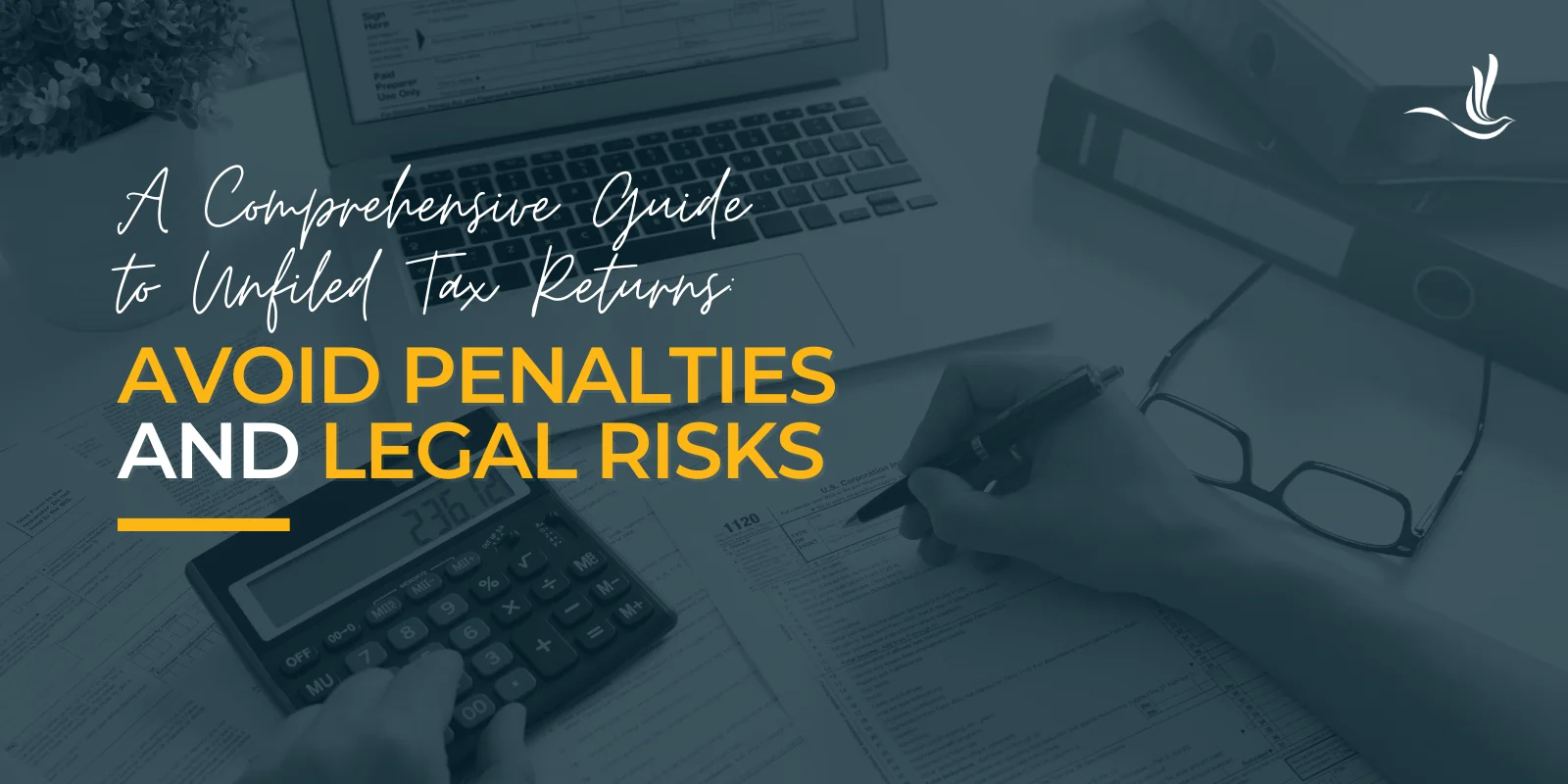Filing tax returns is a fundamental responsibility of every taxpayer, yet many individuals find themselves with unfiled tax returns. This issue is not just a financial inconvenience—it carries significant legal implications. The IRS has robust mechanisms to address unfiled returns, and ignoring this obligation can lead to consequences. This article aims to provide a comprehensive guide to understanding, managing, and resolving unfiled tax returns.
The Role of the Internal Revenue Service in Handling Unfiled Tax Returns
The IRS is the primary enforcer of tax laws in the United States, playing a critical role in ensuring compliance. When it comes to unfiled tax returns, the agency has extensive powers to pursue delinquent taxpayers.
IRS Collection Powers
The IRS has extensive powers to collect unpaid taxes, particularly from individuals with unfiled tax returns. These include:
- Levying Wages: The IRS can garnish your wages directly from your employer to satisfy unpaid tax obligations.
- Seizing Assets: The IRS can seize physical assets, such as real estate, vehicles, or other valuables.
- Bank Account Garnishment: The IRS has the authority to withdraw funds directly from your bank account to cover tax debts.
- Tax Refund Offsets: Any federal or state tax refunds you are owed can be intercepted to pay your debt.
- Liens: The IRS can place a lien on your property, impacting your ability to sell or refinance until the tax debt is cleared.
These enforcement powers highlight the importance of addressing unpaid taxes and unfiled returns promptly to avoid severe financial repercussions.
No Time Limits for IRS Collection
For individuals with unfiled tax returns, the IRS has no time limit to assess and collect taxes. Unlike the 10-year statute of limitations that applies to collecting taxes on filed returns, unfiled returns leave the IRS with open-ended authority. This means the IRS can pursue collection actions indefinitely, making it crucial to address unfiled returns promptly to avoid long-term financial and legal consequences.
Consequences of Not Filing Federal Income Tax Returns
Failing to file your federal income tax returns can lead to a cascade of penalties and legal challenges, both immediate and long-term.
Failure to File Penalty
The failure-to-file penalty is one of the most significant consequences of neglecting to file your tax returns. It accrues at a rate of 5% of unpaid taxes per month or part of a month that the return is late, up to a maximum of 25% of the unpaid taxes. This penalty is substantially higher than the failure-to-pay penalty, making timely filing critical even if you cannot pay the full amount owed immediately.
Failure to Pay Penalty
The failure-to-pay penalty accrues at a rate of 0.5% per month, also capped at 25% of the unpaid taxes. This penalty may seem smaller than the failure-to-file penalty, which starts at 5% per month, but it can still accumulate substantially over time. Additionally, both penalties can apply simultaneously, making it essential to address unpaid taxes promptly to minimize financial losses.
Severe Penalties for Tax Evasion
Tax evasion is considered a serious offense and carries severe penalties, including hefty fines and imprisonment. Individuals found guilty of willfully evading taxes can face fines of up to $100,000 ($500,000 for corporations) and imprisonment for up to five years, in addition to the cost of prosecution. For example, high-profile cases often result in substantial financial penalties and significant prison sentences to deter similar actions by others.
State vs. Federal Tax Collection Differences
State tax collection policies can differ significantly from federal rules. Understanding these differences is crucial for taxpayers with unfiled returns at both levels.
California’s Tax Collection Rules
California permits tax collection for up to 20 years after the assessment date, providing a longer collection window than the federal government’s timeline for filed returns. The California Franchise Tax Board (FTB) enforces these rules rigorously, utilizing methods such as wage garnishments, bank levies, and property liens to recover unpaid taxes. Additionally, the FTB has the authority to suspend professional licenses and driver’s licenses for noncompliance. Compared to other states, California’s collection policies are among the most assertive, making it vital for residents to address their tax obligations promptly to avoid severe consequences.
State Tax Agency Differences
Different states have their own collection rules, which may be more aggressive or lenient compared to the IRS. For example, California, New York, and Texas are known to be more aggressive collection states. On the other hand, Oregon, Florida, and South Dakota are considered more lenient when it comes to tax collection. Taxpayers must familiarize themselves with their state’s policies to ensure compliance.
Addressing Unfiled Tax Returns
Proactively addressing unfiled tax returns is essential to mitigate penalties and avoid legal repercussions. Here are key strategies to resolve this issue.
Substitute for Return (SFR) and Its Implications
If you fail to file, the IRS may file a Substitute for Return (SFR) on your behalf. A Substitute for Return (SFR) is a tax return filed by the IRS on behalf of a taxpayer who has failed to file their own return. While this may sound like you’re off the hook, these returns often exclude deductions and credits, resulting in a higher tax liability and penalties and interest. However, taxpayers can challenge an SFR by filing an accurate return.
Benefits of Filing Missing Returns
The main benefit for filing missing returns is to reduce penalties. Doing so also makes you eligible for tax refunds and puts you in good standing with the IRS, meaning you can avoid more severe collection actions. On another note, filing missing returns helps secure Social Security benefits and facilitates future financial applications, such as loans or mortgages.
Consultation with a Certified Public Accountant or Tax Attorney
For complex situations, consulting a CPA or tax attorney can provide tailored advice and support in navigating unfiled or missing returns. Not only will you receive expert guidance, but you can avoid errors, minimize penalties and interest, and have peace of mind knowing you have an experienced professional to deal with the IRS.
Payment and Negotiation Options with the IRS
If you owe taxes after filing missing returns, the IRS offers various options to settle your debt.
Offer in Compromise
An Offer in Compromise (OIC) allows taxpayers to settle their tax obligations for less than the full amount owed. This option is available for individuals who can demonstrate an inability to pay the full amount. It’s very important to note that many taxpayers do not qualify for an OIC. However, there are other options available to taxpayers who cannot afford to pay their tax debt.
Partial Payment Installment Agreement
A Partial Payment Installment Agreement enables taxpayers to make manageable monthly payments toward their tax liability. Unlike a standard installment agreement, where the taxpayer agrees to pay the full amount owed over time, a PPIA allows the taxpayer to pay only a portion of the debt, with the remaining balance potentially forgiven after the statute of limitations on collections expires (usually 10 years from the date the tax liability was assessed). To qualify, the taxpayer must show that they cannot pay the full amount owed. The IRS reviews financial information, including income, expenses, and assets, to determine eligibility.
Negotiation Tactics with the IRS
Taxpayers can negotiate with the IRS to reduce penalties or establish payment plans that fit their financial circumstances. Professional representation can strengthen these negotiations.
Importance of Fact-Checking and Staying Informed
Staying informed about tax laws and regulations is critical for compliance and effective resolution of tax issues.
Reliable Sources and Fact-Checked Information
Relying on fact-checked resources ensures that you are following accurate and up-to-date guidance, reducing the risk of errors in tax filings. In addition to credible tax professionals, the IRS website is a great resource for taxpayers with information about tax compliance and tax relief options.
Interest Rates and Inflation Impacts on Unpaid Taxes
One critical component to stay informed on is IRS interest rates on unpaid taxes, as these can fluctuate with inflation. In Q4 of 2024, the interest rate on underpayments is 8%. The interest rate on underpayments in Q1 of 2025 is 7%.
Tax Help for Those with Unfiled Tax Returns
Unfiled tax returns are a serious issue with significant financial and legal consequences. By understanding the IRS’s collection powers, potential penalties, and available resolution options, you can take proactive steps to address this issue. Seeking professional assistance and staying informed about tax regulations are crucial to achieving compliance and minimizing your tax burden. Optima Tax Relief has over a decade of experience helping taxpayers get back on track with their tax debt.
If You Need Tax Help, Contact Us Today for a Free Consultation
Publisher: Source link











